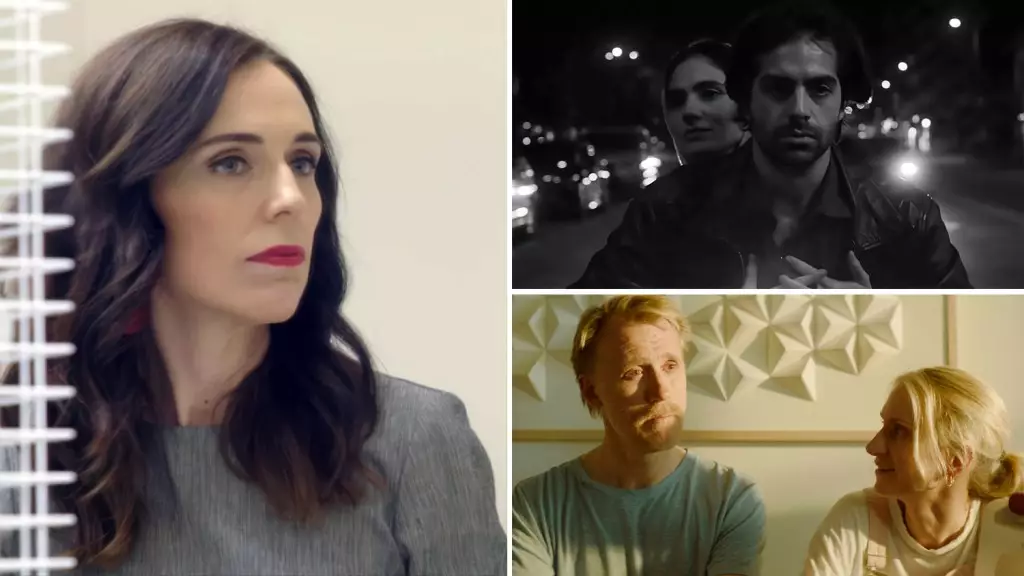The rise of independent filmmaking continues to create waves in the cinema landscape, with documentaries taking the spotlight—especially those exploring the complexities of leadership during crises. This is exemplified by the Sundance winner, “Prime Minister,” directed by Michelle Walshe and Lindsay Utz, entering an exclusive weeklong run at AMC theaters. The film compellingly chronicles the journey of Jacinda Ardern, New Zealand’s former Prime Minister, who ascended to her role amid personal and professional upheaval.
The documentary showcases Ardern’s unprecedented balancing act during the pandemic and her navigation through intricate dilemmas: from banning semi-automatic weapons following a national tragedy to advocating for social reforms, all while expecting her first child—a narrative intertwining power and vulnerability. With Ardern now transformed into a voice for climate activism and a respected author, the documentary invites audiences to reflect on the immense responsibilities of leadership and the capabilities of women in politics—a narrative that uplifts and empowers.
Star Power Meets Grit in “The Unholy Trilogy”
In a divergent realm of cinema, “The Unholy Trilogy” directed by Richard Gray, features cinematic heavyweights Samuel L. Jackson and Pierce Brosnan in a Western that promises to plunge viewers into tales of betrayals and heroism. Set against the picturesque yet gritty backdrop of an 1870s Montana, the film confronts timeless themes: revenge, honor, and the struggle for truth. Jackson’s role, alongside Brosnan’s formidable sheriff character, provides a layered exploration of morality steeped in Western tradition.
These two films bridge the gap between genres—while Walshe and Utz encapsulate the spirit of resilience and leadership during a global crisis, Gray’s film showcases the quintessential battle between good and evil. It’s intriguing how the contrasting narratives provoke the audience’s emotional engagement through different lenses while continuing to uphold the significance of storytelling in driving cultural conversations.
The Intricacies of Identity in Cinema
Moreover, the documentary landscape is increasingly spotlighting powerful narratives through innovative storytelling. For instance, “Tatami,” a sports drama premiering at Venice and directed by Academy Award-winning Guy Nattiv, brings the stories of Iranian athletes into the limelight. This film distinguishes itself by connecting the personal aspirations of its characters against a repressive backdrop, revealing the grave consequences of standing up against authoritarianism.
Leila’s struggle between personal ambition and political oppression personifies the conflict many face in contemporary society. Viewers are confronted with profound questions about sacrifice and identity, as the athletes defy the odds to chase their dreams, resonating with anyone who has ever fought against systemic barriers.
Similarly, “Sex,” part of Dag Johan Haugerud’s Oslo Trilogy, delves into the complexities of human relationships—blurring the boundaries of sexuality and identity within social constructs. The links the films share weave a rich tapestry reflecting society’s shifting dynamics, highlighting how nuanced expressions of love, hate, and self-discovery can emerge from everyday realities.
Unveiling Music’s Influence
Amidst all this cinematic brilliance, the documentary “Simple Minds: Everything Is Possible” directed by Joss Crowley takes a musical turn, drawing audiences into the journey of a band that rose from obscurity to stardom. Behind Simple Minds’ evocative melodies lies a story of resilience and creative expression that resonates with anyone who has grappled with the specter of success and the weight of expectation.
Celebrating their enduring legacy from their Glasgow roots, the documentary serves not only as a tribute to the band’s illustrious career but also as a reflection on the power of music as a catalyst for emotional connection and societal change. The film elicits nostalgia while urging a new generation to understand the cultural significance of its anthems, such as “Don’t You (Forget About Me).”
A Growing Diversification in Film
In a world where narratives often risk being homogenized, the vibrant cross-section of stories emerging from independent filmmakers today is nothing short of exhilarating. From thought-provoking documentaries and stirring political narratives to gritty Westerns and groundbreaking explorations of identity, the current cinematic landscape is teeming with inspirations that both challenge and uplift society.
As these indie films command attention in specialty box offices and beyond, they remind us of the profound connections we share through storytelling. The power of cinema, especially those voices emerging from independent spaces, challenges conventions, pushes boundaries, and transforms the way we perceive ourselves and the world around us. The relationship between narrative and identity has never been more vital, illuminating paths toward empathy and understanding in an ever-evolving cultural framework.
